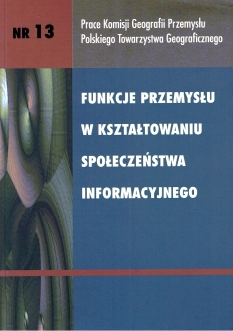Innowacyjność jako główny filar społeczeństwa informacyjnego Europy
DOI:
https://doi.org/10.24917/20801653.13.7Słowa kluczowe:
innowacyjność, społeczeństwo informacyjneAbstrakt
The article presents diversity in innovation in the European states as an aspect of the development of the information society. In accordance with the undertaken research, innovations occupy a specific position among all the factors conditioning the development of the information society. Not only do they dictate the rate and the directions of the economic development, but to a significant degree they influence the forms and the structure of the international cooperation. As a result, innovations constitute this element which in fact determines the international competitiveness of both individual industries and entire economies. The agglomeration of the European states according to their Summary Innovation Index (SII) structure has revealed a clear distinction between the studied elements. They fall into two categories, which are related to an overall level of the socio-economic development as well as significant stages of the development of the European Union. The first group consists mainly of the states of the EU15 and non-member states, while the second group comprises of the EU2004, EU2007 and the candidate states. Considering the mean values of the SII elements, the largest distance between the two groups was revealed between the input of the intellectual property (IP) and the knowledge creation (KC) into innovation of the states, while the smallest distance was revealed in the areas of the I&E and the application.Downloads
Metrics
Bibliografia
Komunikat Komisji Do Rady Parlamentu Europejskiego, Europejskiego Komitetu EkonomicznoSpołecznego oraz Komitetu Regionów, 2007, Usuwanie przeszkód w transgranicznych inwestycjach funduszy venture capital, KOM(2007) 853, dnia 21.12.2007, Bruksela.
Matysiak A., 2003, Kształcenie ustawiczne w Polsce: korzyści i bariery rozwoju, Niebieskie Księgi 2003, nr 8, Instytut Badań nad Gospodarką Rynkową, Gdańsk.
Symela K., 1997, Zasady wdrażania i oceny modułowych programów szkolenia dorosłych, Ministerstwo Pracy i Polityki Społecznej, Warszawa.
Pobrania
Opublikowane
Jak cytować
Numer
Dział
Licencja
Artykuły publikowane są zgodnie z warunkami licencji Creative Commons (CC BY-ND 4.0; uznanie autorstwa-bez utworów zależnych).

